An ancient Peruvian city stood at the crossroads of technologies

SPRAWLING OVER 100 acres on Lima’s dusty northern outskirts, El Paraíso’s eight monumental structures were built with tons of quarried stone 4,000 years ago. French archaeologist Frédéric Engel gave the site its current name, “Paradise,” in the 1950s—seemingly ironic for a place so arid and inhospitable today. But what Engel and later excavators found so remarkable about El Paraíso is the way it witnessed the transition of some of ancient Peru’s most important cultural trends. It was the first major site to be laid out in a U shape, arms open toward the Andes, where the sun rose and where the Chillón River, its source of fresh water, originated. Earlier settlements had faced the ocean. El Paraíso’s innovative plan would dominate urban design in Peru for centuries afterward.
This story is from the July/August 2018 edition of Archaeology.
Start your 7-day Magzter GOLD free trial to access thousands of curated premium stories, and 9,000+ magazines and newspapers.
Already a subscriber ? Sign In
This story is from the July/August 2018 edition of Archaeology.
Start your 7-day Magzter GOLD free trial to access thousands of curated premium stories, and 9,000+ magazines and newspapers.
Already a subscriber? Sign In
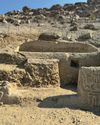
ORIGINS OF PERUVIAN RELIGION
While investigating looters' holes at the site of La Otra Banda in northern Peru's Zaña Valley, archaeologist Luis A. Muro Ynoñán of the Field Museum and the Pontifical Catholic University of Peru spotted carved blocks around seven feet below the surface.
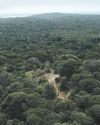
ISLAND OF FREEDOM
Many of the enslaved Africans sent to Brazil beginning in 1549 were from what is now Angola, where one of the most widely spoken languages was Kimbundu.
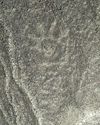
NAZCA GHOST GLYPHS
From the 1940s to the early 2000s, geoglyphs were discovered in the Nazca Desert of southern Peru depicting animals, humans, and other figures at the rate of 1.5 per year.

COLONIAL COMPANIONS
The ancestry of dogs in seventeenth-century Jamestown offers a window into social dynamics between Indigenous people and early colonists.
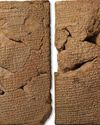
BAD MOON RISING
The British Museum houses around 130,000 clay tablets from ancient Mesopotamia written in cuneiform script between 3200 B.C. and the first century A.D.
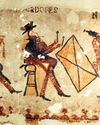
DANCING DAYS OF THE MAYA
In the mountains of Guatemala, murals depict elaborate performances combining Catholic and Indigenous traditions
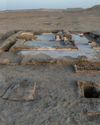
LOST GREEK TRAGEDIES REVIVED
How a scholar discovered passages from a great Athenian playwright on a discarded papyrus

Medieval England's Coveted Cargo
Archaeologists dive on a ship laden with marble bound for the kingdom's grandest cathedrals
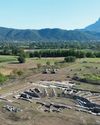
Unearthing a Forgotten Roman Town
A stretch of Italian farmland concealed one of the small cities that powered the empire
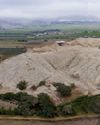
TOP 10 DISCOVERIES OF 2024
ARCHAEOLOGY magazine reveals the year's most exciting finds